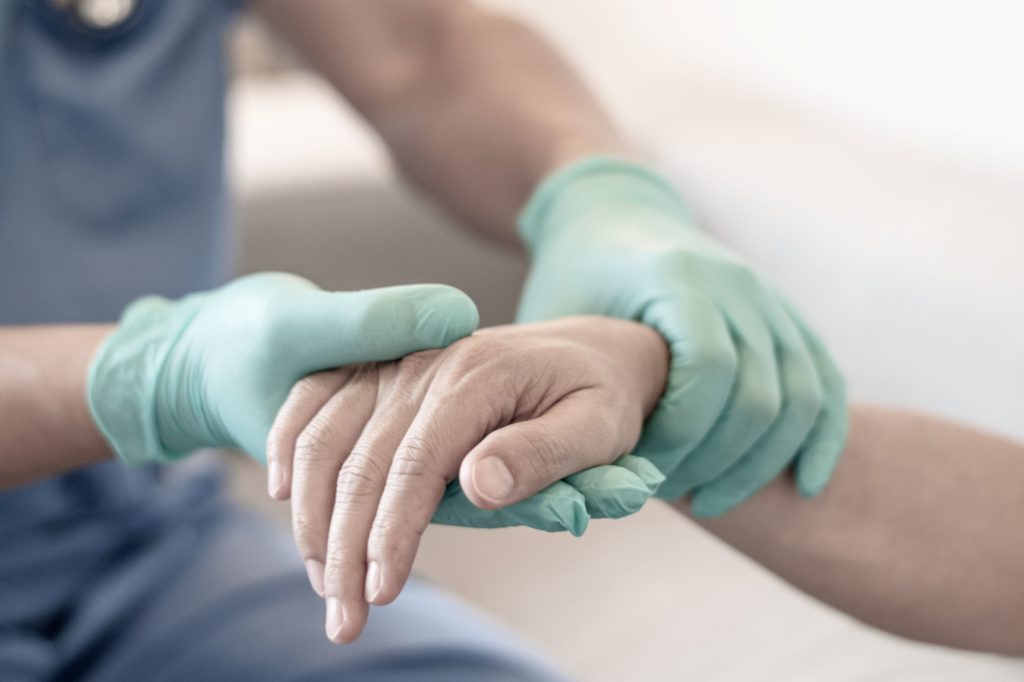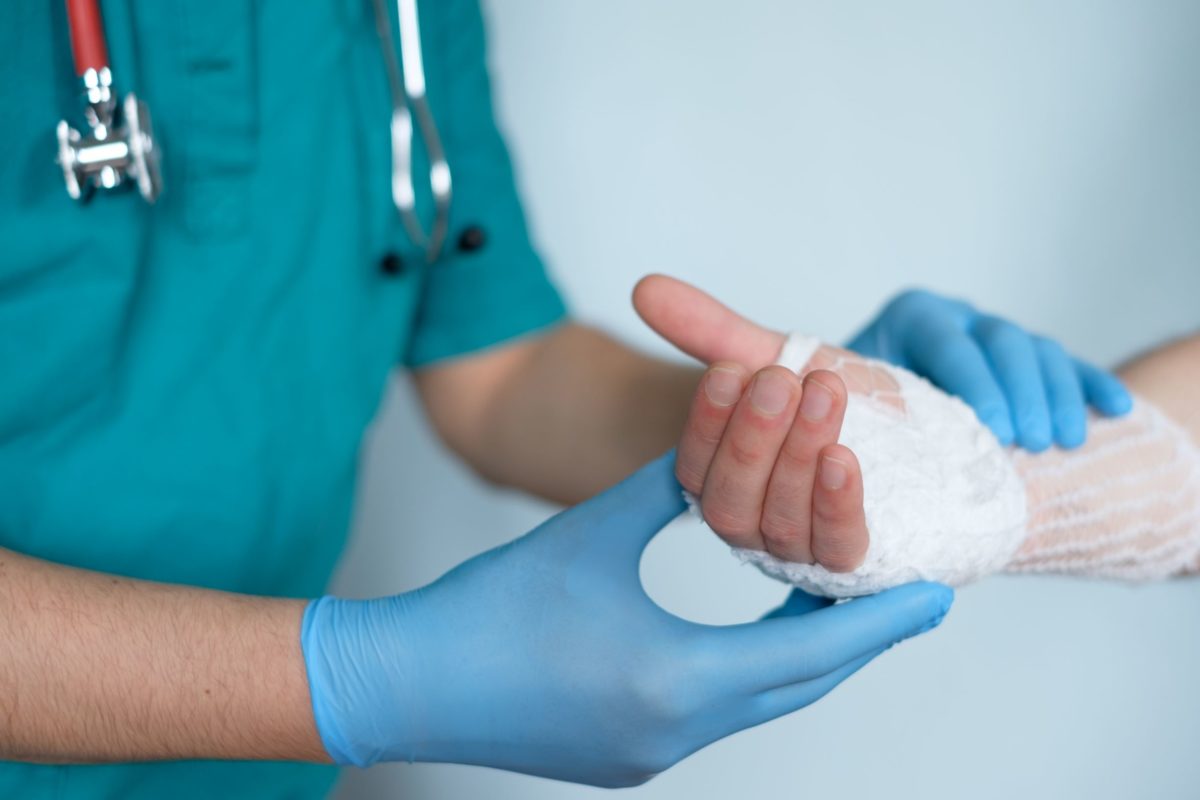If you are scheduled for surgical arthritis treatment, you likely have many questions. Prior to your procedure, we will explain our preparation recommendations, the surgical procedure itself, and the recovery process, as well as address any of your concerns. The following overview also may help prepare you and answer some of the questions you have about surgical arthritis treatment recovery time and results.
Types of Hand Arthritis Surgeries
There are two main types of surgeries for hand arthritis: fusion (arthrodesis) and total knuckle replacement (arthroplasty).
- Arthrodesis: This procedure involves fusing the bones of the joint together to create a more stable knuckle. It reduces the pain, but leaves the finger with little flexibility.
- Arthroplasty: In this procedure, the hand surgeon will remove the damaged joint and replace it with a prosthetic implant. The goal is to relieve pain while restoring shape and some function in the hand.
The main goal is to reduce pain when other treatment options are not effective. Whether arthrodesis or arthroplasty is used depends on the location of the joint, the severity of the condition, and the patient’s age, activity level, and preference.
Preparing for the Procedure
There are a number of things you can do to prepare for your hand arthritis surgery. Taking these steps beforehand will facilitate an easier and more optimal recovery period. Following are only a few suggestions that may help.
- If necessary, rearrange the living room and bedroom in a manner that will allow you to rest easily. For example, place a nesting table beside your sofa, and leave a throw blanket within easy reach.
- Purchase any post-surgery recovery items you may need, or obtain them from our hand doctor’s office in Warren, West Bloomfield, Howell, or Macomb Township. These may include such things as hand splints; heating/cooling pads; over-the-counter medications; and additional bandages or gauze you may need.
- Plan for a ride to and from the doctor’s office on the day of your surgery.
- Shop for groceries ahead of time, buying foods that don’t need too much preparation.
- If you live alone, see if a friend or family member can stay with you overnight on the first day. If you have young children who need your care, find a babysitter or caretaker who can help you for a few days.
- Schedule time off work or school.

Results and Recovery Time Following Surgical Arthritis Treatment
You will be advised to rest and avoid strenuous activity immediately following surgical arthritis treatment. Although you will likely be able to move around, you may feel drowsy, so you should take it easy on the day of the surgery.
If you were given a nerve block in your hand, the numbness may last up to 24 hours. You will also likely be given a prescription for pain medication. Start taking this medication as soon as you get home, and follow the directions that were given to you. You may also be advised to take antibiotics.
To minimize pain and swelling, use a pillow to raise your hand above your heart level as you are sitting at home and during sleep. Do this as often as possible for the first few days.
You should also apply ice packs to your hands for the first several hours to reduce and prevent swelling.
Remember to keep the bandages on your hand dry, including during showering, and change the dressing according to the doctor’s directions.
Overall, it will take two to three weeks for your skin to heal and up to 12 weeks before you have full use of your hand. However, you should be able to resume relatively normal activities within a few days, with the exception of activities that involve extensive use of your hands.
Urgent Care After Surgery & Follow-Up Appointments
Most patients will be scheduled for a follow-up appointment within one week after surgery. At this time, Dr. Arora will evaluate your progress and provide you with any additional guidance.
Some pain, minor swelling, and general discomfort following surgical arthritis treatment is to be expected. However, you should call our office if you experience:
- Excessive bleeding or pain
- Wound drainage that lasts longer than four days
- Bluish color in the fingers, excess swelling, coldness, or paleness
- Nausea or vomiting that lasts more than one day
- Numbness or tingling of the hand that lasts more than one day
- Fever that is greater than 101 degrees Fahrenheit
Go to your nearest urgent care facility or emergency department if you need immediate care.
Physical Therapy After a Hand Arthritis Procedure
After your initial recovery period, you may be referred to a physical therapist or an occupational therapist who can tell you how to complete daily activities in ways that are safe for your joints.
Physical therapy will likely involve various exercises to further repair your hand and strengthen your muscles. You may also learn new methods for completing tasks if you have decreased mobility in your hands.
Most patients notice improvement as time goes on. You should take your physical therapy sessions seriously and remain dedicated to your own improvement. The more you train your muscles, the stronger they will become. Strengthening the muscles in your hands will help protect your wrists, elbows, and shoulders as well.
For additional information about surgical arthritis treatment recovery time and results or other treatment options, call one of our southeast Michigan offices.













